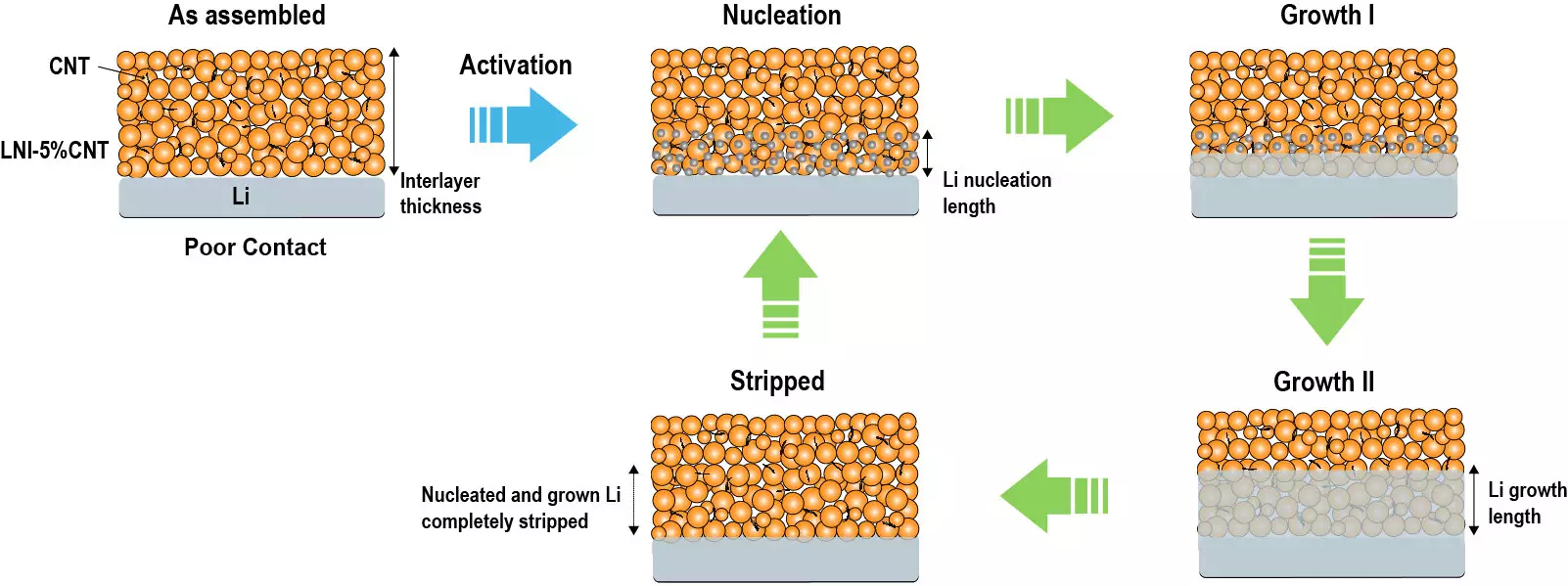Over the past few decades, there has been significant progress in the development of advanced battery technologies to meet the increasing demands of the electronics industry. One such advancement is the emergence of all-solid-state batteries (ASSBs). These batteries, which consist of a solid electrolyte placed between electrodes, offer potential advantages over conventional lithium-ion batteries (LiBs), including higher energy densities and improved safety. However, the deployment of all-solid-state lithium-metal batteries (ASSLBs) on a large scale has been hindered due to issues such as the growth of Li dendrites and high interface resistance. To address these challenges, researchers at the University of Maryland recently introduced a new principle for designing safe and high energy ASSLBs.
The key objective of the research conducted by the University of Maryland team was to find a promising strategy to mitigate the growth of Li dendrites in ASSLBs. They proposed the introduction of a special layer between the lithium anode and solid electrolyte in battery cells. However, the properties of this interlayer were found to be crucial for effective dendrite suppression. The research suggests that the interlayer should possess several key properties, including being lithiophobic (repelled by lithium metal), highly ionic conductive, slightly electronic conductive, and porous.
To validate their design principle, the researchers created a Li4SiO4@LiNi0.8Mn0.1Co0.1O2/Li6PS5Cl/20 µm-Li battery cell with an area capacity of 2.2 mAh cm-2. Initial tests showed that these cells performed remarkably well, retaining 82.4% of their capacity after 350 operation cycles at 60° C and a rate of 0.5 C. Unlike previous studies that introduced various interfaces for dendrite suppression without clear explanations of their mechanisms, this new design principle offers a more comprehensive solution, opening up new opportunities for the development of safe batteries.
The design principle proposed by the University of Maryland researchers has the potential to be applied to a wide range of ASSBs, enabling the suppression of Li-dendrite formation and enhancing battery performance. This, in turn, could pave the way for the development of safe and highly efficient battery technologies using solid electrolytes, capable of powering electric vehicles and other large-scale electronics. Further studies will be conducted to modify and verify the design principle, optimizing the materials used in the interface to achieve even better results.
The development of advanced all-solid-state batteries has the potential to revolutionize the electronics industry. The research conducted by the University of Maryland provides a promising design principle for addressing the challenges associated with the growth of Li dendrites in ASSLBs. By introducing a lithiophobic, highly ionic conductive, slightly electronic conductive, and porous interlayer, the researchers were able to achieve significant improvements in battery performance. While further research and optimization are necessary, this design principle offers a comprehensive solution that could pave the way for the widespread adoption of all-solid-state batteries in various applications.


Leave a Reply